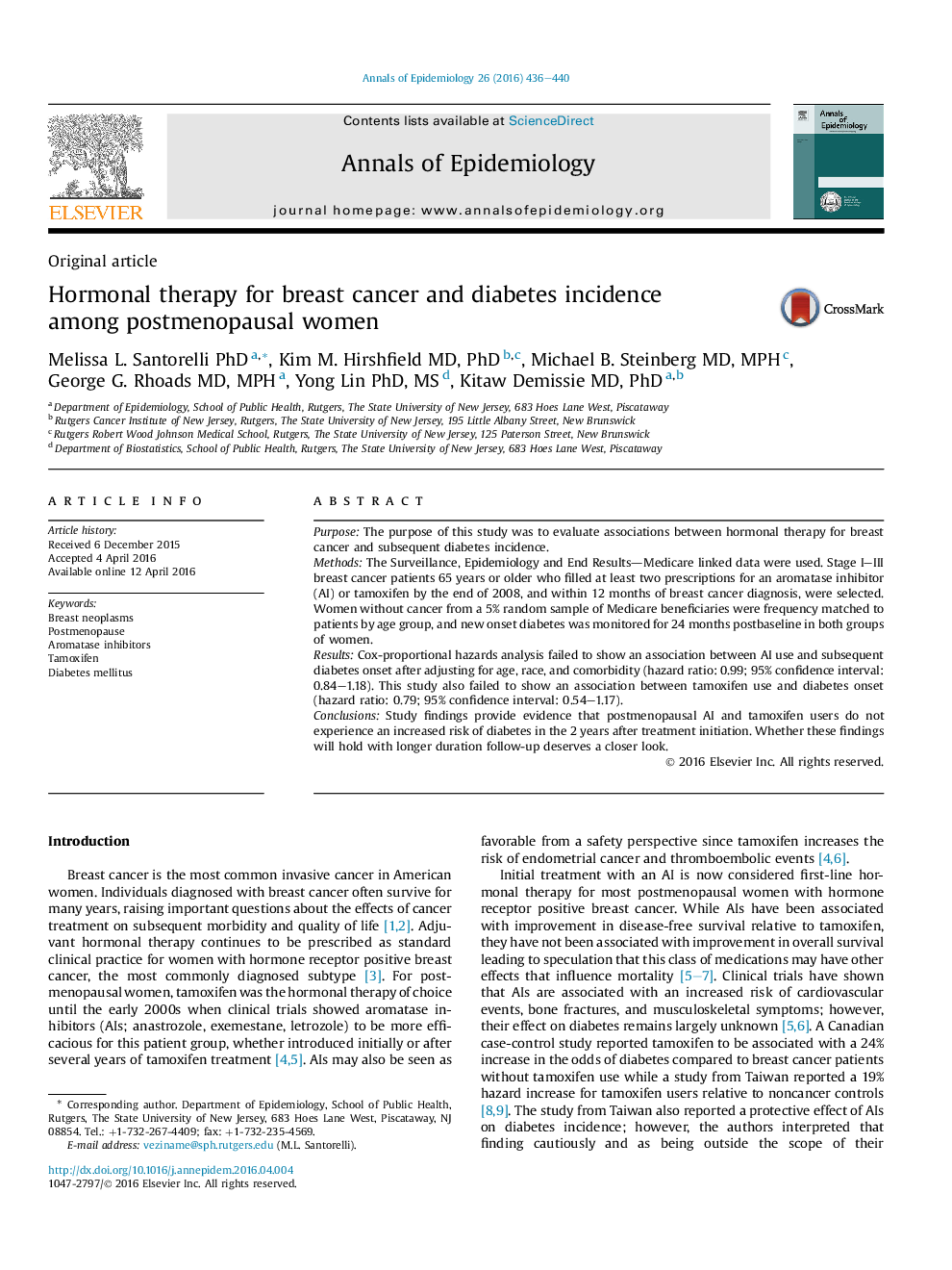| Article ID | Journal | Published Year | Pages | File Type |
|---|---|---|---|---|
| 6147747 | Annals of Epidemiology | 2016 | 5 Pages |
PurposeThe purpose of this study was to evaluate associations between hormonal therapy for breast cancer and subsequent diabetes incidence.MethodsThe Surveillance, Epidemiology and End Results-Medicare linked data were used. Stage I-III breast cancer patients 65 years or older who filled at least two prescriptions for an aromatase inhibitor (AI) or tamoxifen by the end of 2008, and within 12Â months of breast cancer diagnosis, were selected. Women without cancer from a 5% random sample of Medicare beneficiaries were frequency matched to patients by age group, and new onset diabetes was monitored for 24 months postbaseline in both groups of women.ResultsCox-proportional hazards analysis failed to show an association between AI use and subsequent diabetes onset after adjusting for age, race, and comorbidity (hazard ratio: 0.99; 95% confidence interval: 0.84-1.18). This study also failed to show an association between tamoxifen use and diabetes onset (hazard ratio: 0.79; 95% confidence interval: 0.54-1.17).ConclusionsStudy findings provide evidence that postmenopausal AI and tamoxifen users do not experience an increased risk of diabetes in the 2 years after treatment initiation. Whether these findings will hold with longer duration follow-up deserves a closer look.
